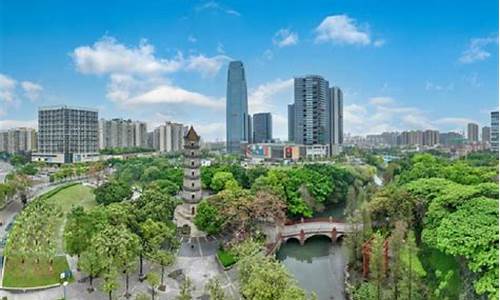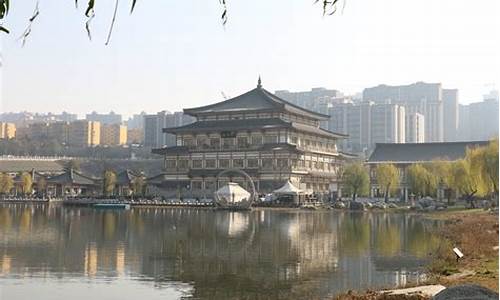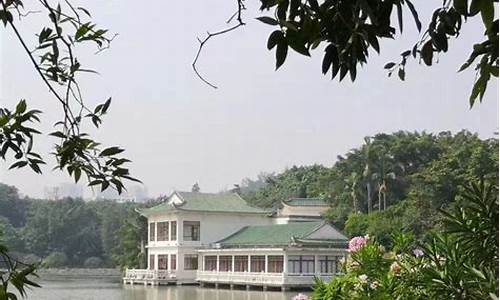旅游路线英语单词_旅游路线英语单词怎么说
1.旅游英语单词
2.几个翻译过来都是旅游英语单词的区别

简明汉英词典
基本解释
旅游
junketing tour
例句
" He gets to visit tourist sites he never had time for.
他可以到以前没时间去的旅游胜地观光游览。”
A variety of tourism products designed around sightseeing, conferences and contests, vacations, business trips, academic studies, cultural explorations, technology, sports, ecological tours, and traditional customs shall all be improved.
完善观光旅游、会奖旅游、度假旅游、商务旅游、修学旅游、文化旅游、科技旅游、体育旅游、生态旅游、民俗旅游等旅游产品。
We could always go sightseeing.
我们可以去观光旅游。
Apart from the tour listed in the brochure, we have arranged two additional visits to local vineyard.
除了旅游宣传手册上列出的观光项目外,我们还安排了两次去当地葡萄园游览。
Apart from the tour listed in the brochure, we have arranged two additional visit to local visit to local vineyard.
除了旅游宣传手册上列出的观光项目外,我们还安排了两次去当地葡萄园游览。
旅游英语单词
“旅行”用英语说是“travel”。
下面我带大家来了解一下travel的其他详细内容,希望对您有所帮助:
一、单词音标
单词发音:英?['tr?vl]? ? ?美?['tr?vl]?
二、单词释义
v.?旅行;去某地;传播;快速移动;[体]走步
n.?旅行;移动
三、词语用法
n. (名词)
travel的基本意思是“行走,行驶”,引申可指“旅行,旅游”,指某人到各个不同的地方所进行的多次旅行,尤指一段较长时间的出国旅行。travel泛指旅行时,用作不可数名词,不加不定冠词; 如果指一次较长时间、且去过多处地方的旅游时,常用复数形式travels。
travel可指“旅行笔记,游记”,通常用复数形式,但不加many或数字修饰。
travel还有“一批旅客”的意思。
v. (动词)
travel的基本意思是指行走、行驶、旅行、游历、走过、绕过某地区。引申可表示“回想”。还可表示“(被)传播”“运送”“外出推销或巡兜生意”。
travel可用作不及物动词,也可用作及物动词。用作及物动词时,接名词、代词作宾语。可用于被动结构。
表示“乘某种交通工具旅行”时, travel后可以接介词by, in或on+交通工具。
travel还可指“快速移动”,用作不及物动词。
四、短语搭配
advertise travel in ...?宣传到…地方的旅行
build up travel to?发展去…地方的旅游
encourage tourist travel?鼓励观光旅游
enjoy travel?旅行愉快
forsake a travel?抛弃一本游记
long for a travel?渴望旅行
make worldwide travels?作环球旅行
modernize a travel?使旅游现代化
promote travel to?促进旅游
publish one's travel?出版游记
read travels?读游记
recite travels?详述旅行
recount travels?描述旅行
relinquish travels?放弃旅行
set out travel?出发旅行
五、词义辨析
journey,tour,travel,trip,voyage,excursion,expedition,cruise这些名词均含“旅行”之意。
journey最普通用词,侧重指时间较长、距离较远的单程陆上旅行,也指水上或空中的旅行。
tour指最后返回出发地,旅途中有停留游览点,距离可长可短,目的各异的周游或巡行。
travel泛指旅行的行为而不指某次具体的旅行,多指到远方作长期旅行,不强调直接目的地,单、复数均可用。
trip普通用词,口语多用,常指为公务或游玩作的较短暂的旅行。
voyage指在水上旅行,尤指海上旅行,也可指空中旅行。
excursion较正式用词,常指不超过一天的短时期性游玩,也可指乘火车或轮船往返特定景点的远足旅游。
expedition指有特定目的远征或探险。
cruise主要指乘船的游览并在多处停靠。
六、双语例句
Sound?travels?better?in?water?than?in?air.?
声音在水中比在空气中传播得快。
I've?always?had?a?yen?to?travel?around?the?world.?
我一直非常渴望周游世界。
I?go?to?bed?early?if?I'm?travelling?the?next?day.?
如果第二天去旅行我就早睡。
Flying?is?quite?the?best?way?to?travel.?
航空绝对是最佳旅行方式。
When?I?finished?college?I?went?travelling?for?six?months.?
我大学毕业后在外旅行了六个月。
We?lost?our?money?when?the?travel?company?went?bust.?
旅行社破产,我们的钱都赔了进去。
The?novel?is?based?on?his?travels?in?India.?
这部长篇小说是根据他的印度之行写成的。
几个翻译过来都是旅游英语单词的区别
旅游英语单词如下:
1. vacation。
vacation表示“假期”指的是不工作或不上学而进行休息的假期,多用于美式英语。
要注意的是,表示“在度假”时,多用be on vacation,而不说have vacation。
此外,vacation还可以作动词用,也是可以表示“休假;度假”。
go on vacation?去度假。
a summer vacation?暑假。
Dan told his boss that heneeded a vacation, but his boss asked him to fulfill the task first.?丹告诉他老板说他需要一个假期,但是他老板让他先完成任务再说。
2. holiday。
holiday表示的“假期”和vacation一样,可以指不工作或不上学进行休息的假期。
holiday更多用于英式英语中,而在表示“暂时性的休假”时,常用off而不用on holiday。
holiday也可以作动词,表示“度假”,多用于新闻报道中。
此外,holiday还可以指法律规定的假期,即法定假日或公共假日。所以呢,例如“国庆假期”就多用“National Day Holidays”啦。
Labor Day holiday?劳动节假期。
a summer holiday?暑假。
- Did you plan to travel in theNational Day Holidays?你是不是打算国庆去旅游了?
- Yes. But it seems a littlebit difficult for me to afford the costs now .?对啊,但现在看来这费用对我来说负担有点重。
3. sabbatical。
sabbatical表示“休假;公休假”,指的是某人(多为教师)暂停平时的工作去进行研究或旅行的假期。
要注意的是,这个词虽然看起来很像形容词,但是在表示“休假”的意思时,是作名词哦。
Kate, our French teacher,decidedto take a ten-day sabbatical, which her families support a lot.?我们的法语老师凯特准备休个十天的假期,她的家人对此也很支持。
4. furlough。
furlough作名词时,可以表示“休假;假期”,指的是在国外服役的士兵或国外工作人员可以回国的假期。
They were several soldiers onfurlough in our town last month, who got along well with the kids.?上个月我们镇里有几个回国休假的士兵,他们当时和孩子们相处得很好。
6. leave。
leave这个词我们常用来作动词,表示“离开”等,事实上作名词的时候,可以表示“休假”。
作名词表示的“休假”是指可以不用工作的一段时间,例如生病无法工作需要请病假,就用sick leave。
maternity leave?产假。
annual leave?年假。
- Where is Jane, the oneresponsible for the project?简在哪?就是那个负责项目的人。
- She is not here today becauseshe has asked for sick leave.?她今天不在这儿,因为请了病假。
7. break。
break这个词也是常作动词使用,表示“打破;破裂”等,在作名词时,也可以表示“休息;短假期”。
它指的是停止工作或学习进行的休息,又或者是不需要上课的小假期,例如国外某些大学会放spring break即春假(在春天放的假,通常为两周)。
We are looking forward to thespring break this year because we’ve planned to go trekking.?我们很期待今年的春假,因为我们计划要去进行徒步旅行。
Journey(n.)---“旅行”,“旅程”。普通用语,指陆地上的远程旅行。
Tour(n.)---“周游”。指途中在许多地方作短暂停留的观光游览。
Trip(n.)---“旅行”。指来往有定的短距离旅行,强调在路上所花的时间和所走的路程。
Travel(n.)---“旅行”。惯用复数形式。泛指旅行各地,表示旅行的路途远,时间长。
例句:
At first I was afraid the long journey would be too much for her. At first I was afraid the long journey would be too much for her. 起初我担心她不能行这样远的路。
I wish you a good journey. I wish you a good journey. 祝你)一路平安。
We went on a guided tour of Italy that included stops at Milan, Venice, Florence and Rome. Florence and Rome. 我们在导游的带领下游览了意大利, 包括米兰,威尼斯,佛罗伦萨和罗马。
They are now making a bridal tour. They are now making a bridal tour. 他们正在新婚旅行。
I go to work by train, and the trip takes 40 minutes. y train, and the trip takes 40 minutes. 我坐火车上班, 路上花40分钟。
I can”t afford a trip to Europe. t afford a trip to Europe. 我负担不起去欧洲旅游的费用。
This trip was cancelled because of the snowstorm. This trip was cancelled because of the snowstorm. 因为暴风雪, 旅行取消了。
The travels of Marco Polo is one of the most interesting books that I have ever read. ve ever read. 马可波罗的游记是我生平读过的最有意思的一本书。
Is he back from his travels yet? Is he back from his travels yet? 他游历回来了吗?
声明:本站所有文章资源内容,如无特殊说明或标注,均为采集网络资源。如若本站内容侵犯了原著者的合法权益,可联系本站删除。












